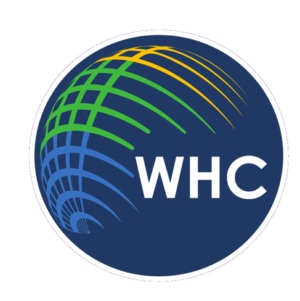The WHC Entrepreneurship Curriculum
The WHC Entrepreneurship Curriculum is a structured, 8-week online program that serves as the consistent “product” delivered to county partners. Its design reflects a philosophy of providing practical, actionable information “written by entrepreneurs for entrepreneurs”. The weekly topics are remarkably consistent across all documented programs, covering essential business competencies such as Building a Sustainable Organization’s Infrastructure; Leading People and Planning for Growth; Marketing and Selling (B2G, B2B, and B2C); and the fundamentals of Accounting, HR, Legal, and Insurance. The curriculum’s credibility is bolstered by its adoption not only by county governments but also by academic institutions like Johns Hopkins University and Morgan State University, as well as federal bodies like the U.S. Small Business Administration.
The pedagogical linchpin of the entire curriculum is its intensive focus on cash flow projections, which is introduced in the very first week and is a mandatory component of the final presentation required for graduation. This foundational emphasis on financial literacy is the mechanism that drives the program’s tangible outcomes. It compels entrepreneurs to deeply understand the numbers that govern their business, which is a prerequisite for planning strategic growth, justifying new hires, setting profitable prices, and effectively communicating with lenders and investors. By teaching participants how to “tell your story with numbers,” the curriculum directly equips them with the single most critical skill needed to access capital and achieve sustainable growth.
Case Study: Anne Arundel County’s Inclusive Ventures Program (IVP)
Launched in January 2021, the Inclusive Ventures Program (IVP) in Anne Arundel County represents the model’s flagship implementation and a critical proof of concept. Managed by the Anne Arundel Economic Development Corporation (AAEDC), the program contracts WHC to facilitate an 8-week course specifically targeting small, minority-owned, women-owned, and veteran-owned businesses. Upon completion, each graduate receives a $5,000 seed grant and access to continued mentorship. The program has received widespread acclaim, with Anne Arundel County Executive Steuart Pittman lauding it as “the best thing happening in economic development in the state of Maryland”.
The economic impact of IVP is well-documented and substantial. An 18-month follow-up survey of the first three cohorts, comprising 31 businesses, revealed the creation of 115 net new jobs and the generation of over $7.8 million in new revenue. This remarkable success served as a catalyst, validating the WHC model and enabling its rapid expansion. The program’s proven results attracted significant follow-on investment, including over $1 million in county COVID relief funds, $1.65 million in federal funding, and major corporate sponsorships from entities like BGE and M&T Bank. The exceptional, quantifiable success and strong political endorsement of IVP created an undeniable case study that WHC leveraged to replicate its program across the state.
Case Study: Charles County’s Business Growth Advantage Program (BGAP)
Following the success in Anne Arundel, Charles County contracted WHC to develop and facilitate its Business Growth Advantage Program (BGAP). This 8-week program provides graduates with a $10,000 grant to be used for working capital. Between May 2022 and July 2024, BGAP graduated 151 businesses across 11 cohorts, disbursing a total of $1,465,000 in grant funding.
A detailed economic impact report, based on a survey of 112 graduates, provides a nuanced picture of the program’s outcomes :
- Revenue Growth: 73.15% of businesses reported an increase in revenue. Of those, 23.33% saw an 11-20% increase, and 20% experienced a 21-30% rise.
- Job Creation: 48.65% of businesses created at least one full-time job, while a more substantial 75.45% added part-time roles.
- Market Expansion: 66.04% of participants successfully acquired new business opportunities after completing the program.
These figures suggest that for many small businesses, the initial phase of growth following the program focuses on increasing profitability and operational stability—often through part-time hires—before making the larger commitment of adding full-time staff. This understanding has informed the county’s strategy, leading to the creation of “BGAP 360,” an advanced follow-on program designed to help these now-stabilized businesses scale their operations and accelerate full-time job creation.
Model Replication and Adaptation on the Eastern Shore
The WHC programmatic blueprint has proven highly adaptable, successfully expanding to the more rural counties of Maryland’s Eastern Shore. Talbot County launched its “Talbot Works Business Academy” in 2024, followed by Caroline County’s “Economic Edge” program, with Dorchester County scheduled to launch its own version in 2025. These programs adopt the same core 8-week online curriculum facilitated by WHC, demonstrating the model’s versatility across different economic landscapes.
This expansion highlights the model’s particular value to rural jurisdictions, which often have a critical need to support their small business communities but may lack the internal resources or specialized expertise to develop a comprehensive accelerator program from the ground up. By contracting with WHC, these counties can efficiently implement a proven, turnkey solution, allowing them to provide a high-impact service that directly addresses their economic development goals without the significant upfront investment and risk of creating a new program internally.
Contact us below to learn more.

